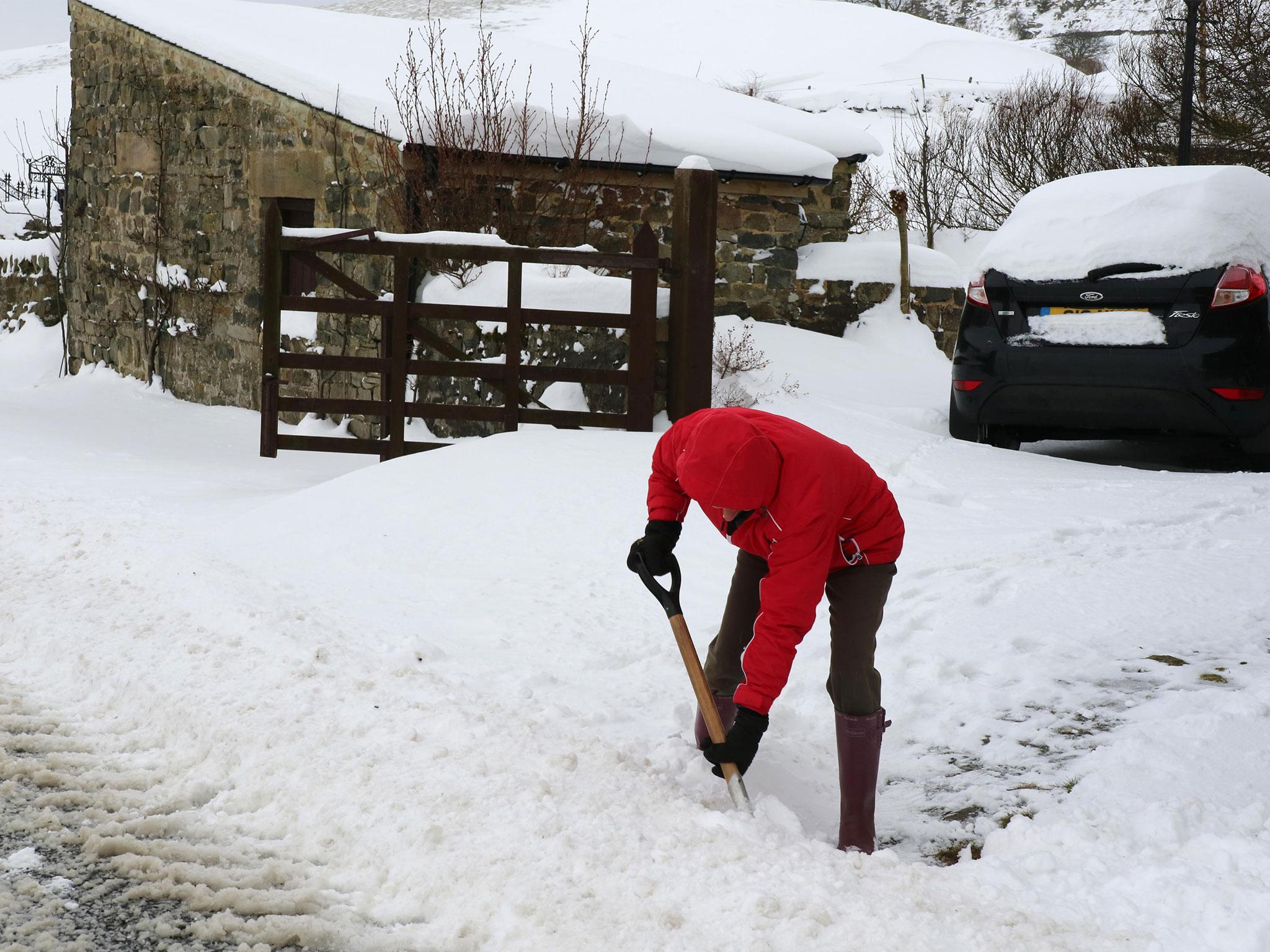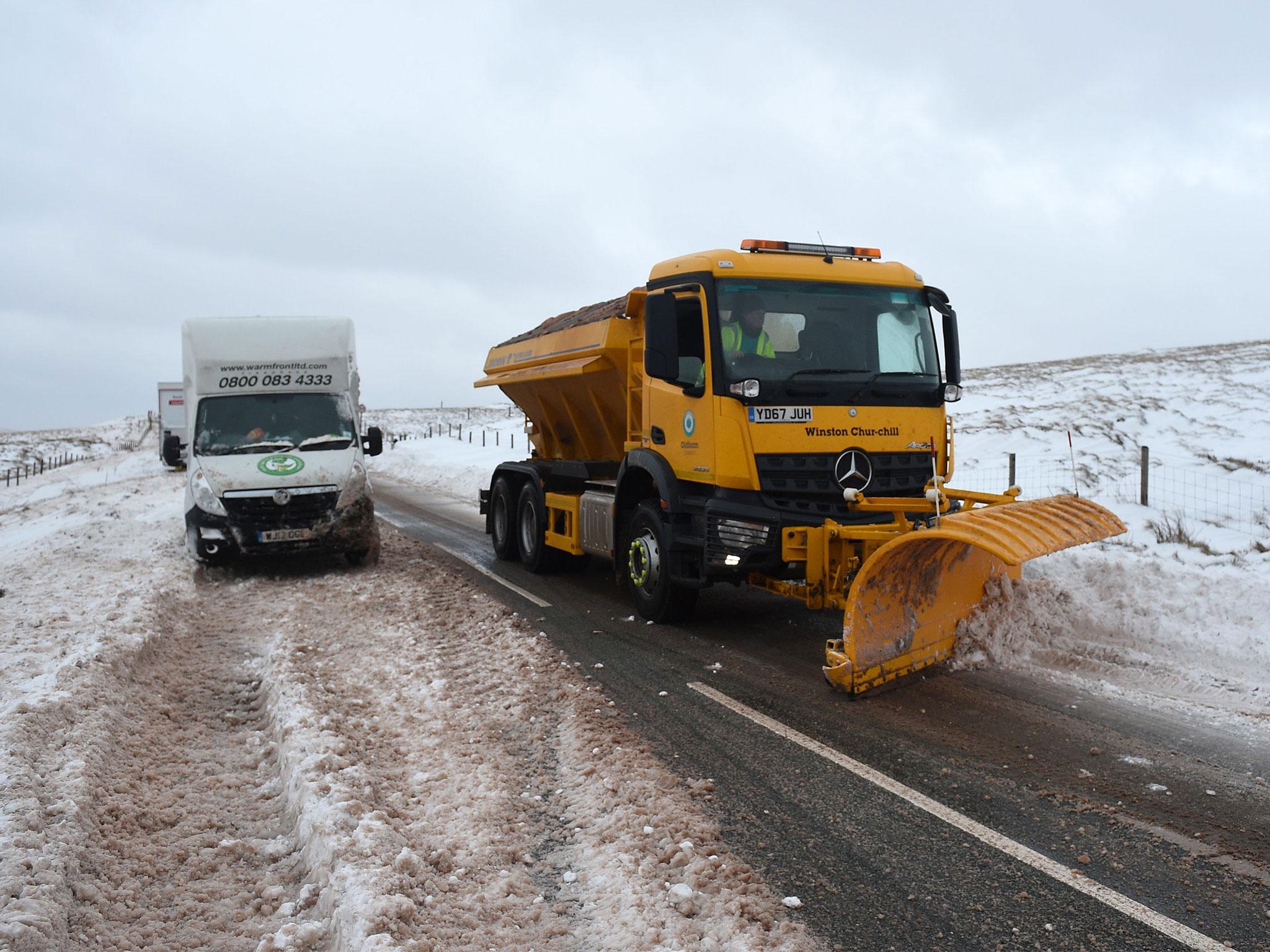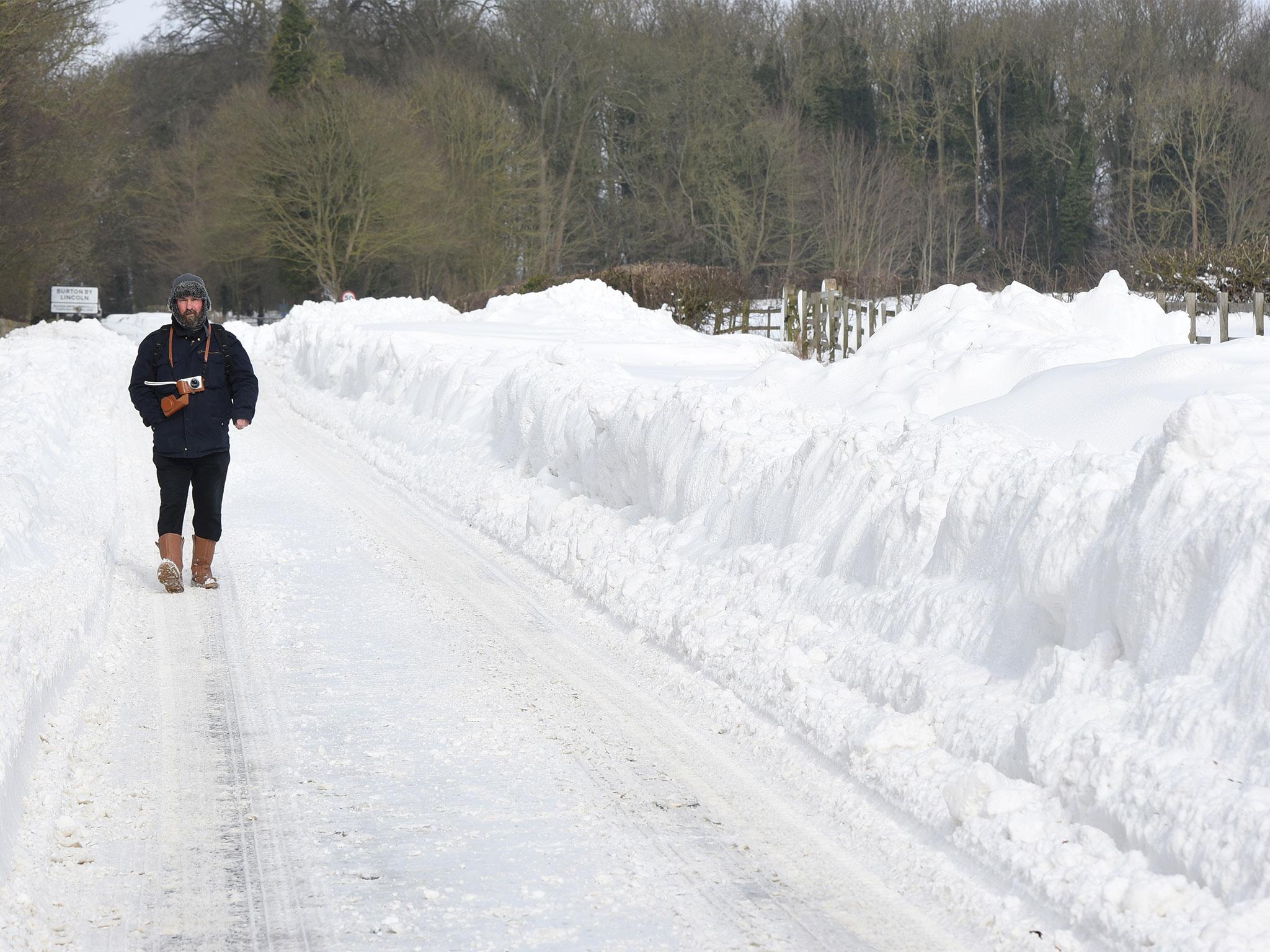UK weather latest: Severe warnings remain in place as Britain counts Storm Emma toll
Warnings snowy conditions could now give way to freezing rain, creating havoc on Britain's roads

Your support helps us to tell the story
From reproductive rights to climate change to Big Tech, The Independent is on the ground when the story is developing. Whether it's investigating the financials of Elon Musk's pro-Trump PAC or producing our latest documentary, 'The A Word', which shines a light on the American women fighting for reproductive rights, we know how important it is to parse out the facts from the messaging.
At such a critical moment in US history, we need reporters on the ground. Your donation allows us to keep sending journalists to speak to both sides of the story.
The Independent is trusted by Americans across the entire political spectrum. And unlike many other quality news outlets, we choose not to lock Americans out of our reporting and analysis with paywalls. We believe quality journalism should be available to everyone, paid for by those who can afford it.
Your support makes all the difference.Weather warnings remain in place across large parts of the UK, but extreme conditions seen in the past week are now slowly beginning to ease.
The slight break in the weather comes after days of severe disruption by heavy snowfall, which has caused several deaths including that of a seven-year-old girl.
After the coldest start to March on record, which left hundreds stranded on the roads and disruption across the UK's travel network, some places are likely to see an easing of the extreme conditions this weekend.
Met Office forecasters said temperatures could climb to as high as 7C for parts of Wales and the South West on Saturday, with rain replacing the snow that has blighted Britain for much of the past week.
The M62 in Greater Manchester finally reopened in the early hours of Saturday morning after being closed for more than a day.
Hundreds of motorists had spent Thursday night trapped in their cars when heavy snowfall and high winds left the road impassable.
Collisions have occupied emergency services across the country, while the army was drafted in as part of a major rescue operation to reach motorists trapped on roads by heavy snow and icy blasts.
Between five and 10 vehicles collided at around 3.45pm on Friday on the A38 westbound in Devon, Highways England said, while a further 30 vehicles became stuck in a lane due to the weather conditions after the accident between the A380 and B3344.
Southeastern rail services were also severely disrupted after frustrated passengers jumped from a train near Lewisham station, south London, on Friday evening and began walking down tracks.
In Scotland, Scotrail said staff are working "night and day" to reopen lines, but in some areas the work of snow ploughs is being undone by more snow drifts after they pass.
The Met Office said Thursday saw the temperature slump to its lowest daily maximum on record for March, -5.2C in Tredegar, southeast Wales.
Half a metre of snow was measured in two areas - Drumalbin, Lanarkshire, and St Athan in Glamorgan, while strengthening winds caused blizzards and drifting snow in some parts of the country.
Yellow weather warnings remain in place across southern England, Wales and Northern Ireland on Saturday as snow begins to turn to ice, while more snow could be on the way in Scotland.

By Sunday, only eastern areas of Scotland are likely to see any more snow.
Southern areas will see a gradual improvement in weather conditions over the weekend as temperatures become milder.
Met Office chief meteorologist, Paul Gundersen, said; "As we head into next week there is likely to be more of a north-south split in weather conditions.
“There will continue to be a risk of rain, sleet and snow at times.
“The less cold air means there will be a gradual thaw, but this will freeze again overnight so ice is likely be an additional overnight hazard together with low cloud and fog.
“Colder conditions will continue in the north, with snow showers, although less heavy and less frequent than of late."
Police in Manchester fear the freezing weather may have claimed the life of 19-year-old Charlie Pope, after officers investigating his disappearance found a body.
The teenager, from West Didsbury, was last seen early on Thursday more than two hours after leaving the Zombie Shack club in the city centre.
Greater Manchester Police said in a statement a body had been discovered in a nearby canal during a search operation on Friday afternoon.
"Although formal ID is yet to take place, it is believe to be Charlie Pope," a spokesperson for the force added.
"His family have bee informed and are being provided with support from specially trained officers at this tragic time."
Flood warnings have also been issued in several coastal regions by the Environment Agency, which published 15 warnings and 36 alerts, predominantly for south west and north east England.
Large parts of the Irish Republic remain on red alert until 9am on Saturday, after being hit by the worst snow in 35 years.

Meanwhile, the RAC said frozen rain , which occurs when snow, ice, sleet or hail passes through a layer of warm air before freezing again as it lands, could pose a deadly road risk.
Traffic spokesman Rod Dennis said: "Freezing rain perhaps represents one of the greatest challenges any driver could face.
"Droplets of rain which come into contact with the ground and other surfaces freeze instantly.
"This creates a huge hazard as roads may look clear and safe, despite actually being potentially icy death traps.
"Where freezing rain is forecast, put simply drivers should avoid using their vehicles in affected areas."
Additional reporting by Press Association
Join our commenting forum
Join thought-provoking conversations, follow other Independent readers and see their replies
Comments